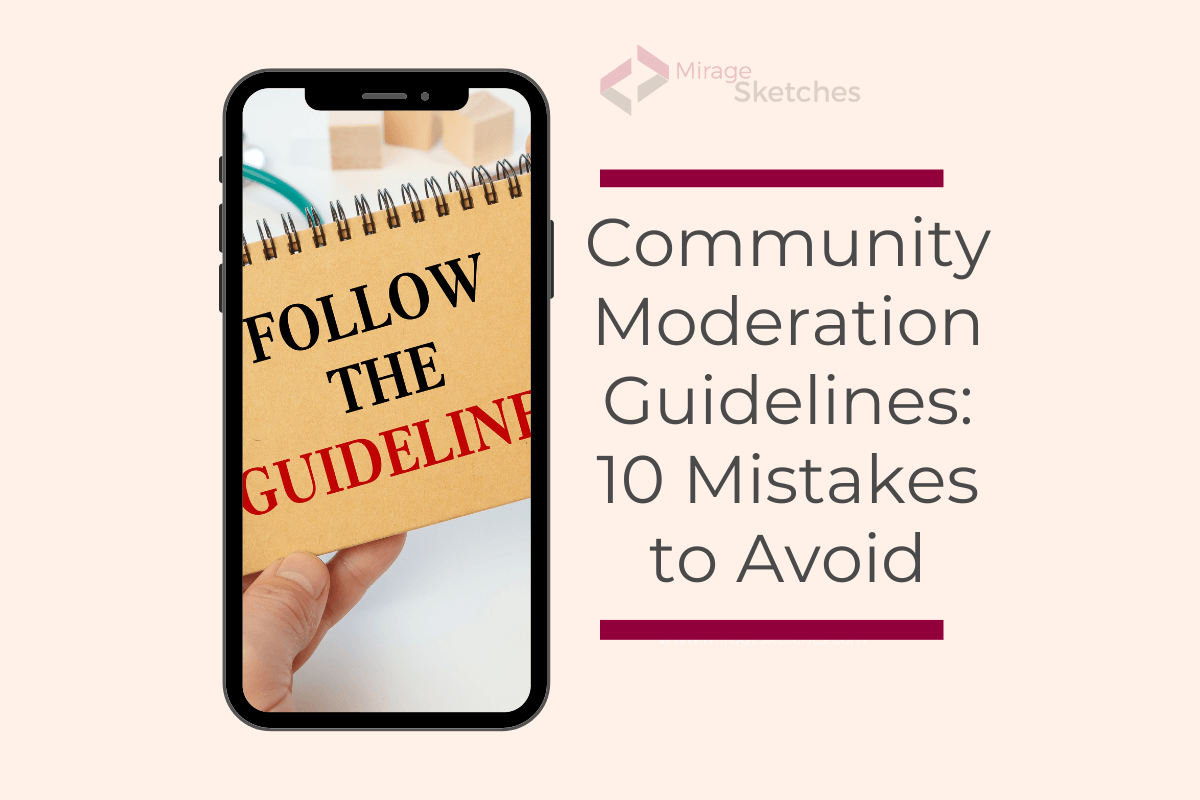Introduction
Online communities have grown exponentially.
From niche forums to expansive social media platforms, communities are the lifeblood of the internet.
Ensuring these platforms remain safe, respectful, and productive requires practical community moderation guidelines.
However, the process isn’t as straightforward as it sounds.
Properly moderating a community is a nuanced task, and there are several mistakes moderators often make.
Understanding these pitfalls is critical to creating a healthy online environment.
This article will discuss the most common mistakes to avoid.
1. Being too Vague
One of the most common errors when creating moderation guidelines is vagueness.
Phrases like “be respectful” or “no inappropriate content” can be interpreted in various ways.
To avoid confusion:
- Be explicit: Clearly define “disrespectful” or “inappropriate” with specific examples.
- Regularly update: Ensure guidelines evolve with the community. What was acceptable a year ago might not be today.
2. Lack of Consistency
Consistency is the backbone of trust. If users see one rule being enforced differently among community members, it can erode confidence in moderation.
- Train moderators: Ensure all moderators interpret and enforce rules consistently.
- Regularly review decisions: Conduct periodic reviews of moderation decisions to ensure consistent enforcement.
3. Ignoring Cultural and Regional Differences
In a global community, what’s considered acceptable in one culture might be taboo in another.
- Cultural awareness: Understand the diverse backgrounds of your community members.
- Localized guidelines: Consider creating region-specific policies if your community is significant in various regions.
4. Not Providing a Feedback Mechanism
Community members should be able to voice concerns or provide feedback on moderation decisions.
- Open channels: Maintain a channel where users can discuss and provide feedback on the moderation process.
- Transparency: When rules change or significant moderation decisions are made, communicate the reasons to the community.
5. Failing to Adapt
Online communities are ever-evolving, and so should community moderation guidelines.
- Review periodically: Set aside time to review and update the guidelines.
- Seek community input: Engage with community members when updating guidelines to understand their needs and concerns.
6. Over-Moderation
Being too stringent can stifle community growth and discourage active participation.
- Balance: Strike a balance between maintaining order and allowing freedom of expression.
- Give warnings: Instead of immediately banning or taking action, consider providing warnings or guiding users to correct behaviors.
7. Not Recognizing the Positive
Focusing only on negative behaviors can create a pessimistic environment.
- Highlight the good: Recognize and reward positive contributions and behaviors.
- Positive reinforcement: Use tools like badges, points, or special privileges to encourage desirable behaviors.
8. Lack of Moderator Support
Moderators are the front line of your community and can face burnout or emotional stress.
- Provide training: Equip moderators with the tools and knowledge to handle challenging situations.
- Emotional support: Recognize the emotional toll of moderation and offer support, like regular check-ins or counseling options.
9. Neglecting Data
Data can provide insights into trends, problematic areas, or potential issues before they become more significant problems.
- Analyze trends: Regularly review moderation actions to identify patterns.
- Feedback loop: Use data to refine and improve the moderation process.
10. Not Being Transparent
Transparency builds trust. Users who understand the ‘why’ behind decisions are more likely to respect and adhere to guidelines.
- Open communication: When significant decisions or rules change, communicate with the community.
- Provide reasoning: Offer explanations behind decisions to foster understanding.
Conclusion
Drafting practical community moderation guidelines is essential for fostering a safe and positive online environment.
Avoiding the abovementioned pitfalls will ensure your policies are transparent, fair, and adaptable.
Remember, the key is to strike a balance between freedom of expression and maintaining order.
With thoughtful and consistent moderation, online communities can thrive and become spaces where users feel valued and heard.





